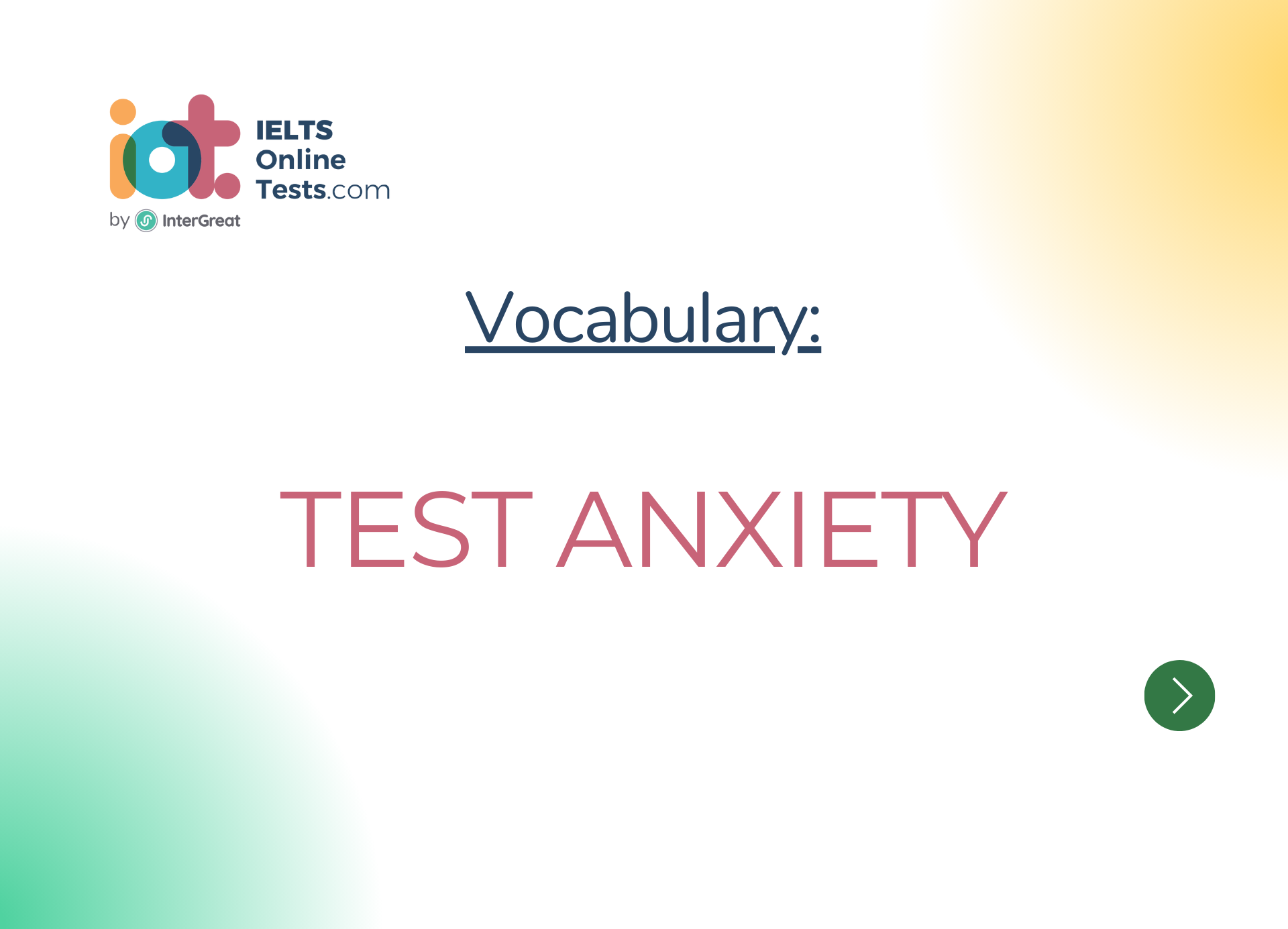
Test anxiety
Here are some additional vocabulary words related to "Test Anxiety" for the IELTS band score 3.0-4.5:
I. Test Anxiety:
Nervousness: Feeling anxious or worried before or during a test.
Stress: Emotional or mental pressure experienced in response to challenging situations.
Tension: A state of mental or physical strain, often accompanied by restlessness or unease.
Panic: Sudden and intense fear or anxiety that can impair one's ability to think clearly or perform well.
Overthinking: Excessive rumination or dwelling on negative thoughts related to the test.
II. Symptoms of Test Anxiety:
Racing Heartbeat: Increased heart rate or palpitations due to nervousness or stress.
Sweating: Perspiration or clamminess, often associated with anxiety or nervousness.
Shallow Breathing: Breathing that is quick, shallow, or irregular, often caused by anxiety.
Nausea: A feeling of queasiness or discomfort in the stomach, sometimes accompanied by the urge to vomit.
Forgetfulness: Difficulty in recalling information or forgetting previously learned material due to anxiety.
III. Coping Strategies:
Relaxation Techniques: Practices such as deep breathing, progressive muscle relaxation, or meditation to calm the mind and body.
Positive Self-Talk: Encouraging oneself with positive affirmations and optimistic statements.
Time Management: Creating a study schedule and allocating time for relaxation and self-care.
Visualization: Mental imagery of success, envisioning oneself performing well in the test.
Preparation: Adequate study and practice to build confidence and reduce anxiety.
IV. Seeking Support:
Supportive Friends and Family: Trusted individuals who provide encouragement, reassurance, and understanding during the test preparation and exam period.
Guidance Counselors: Professionals who can offer advice and strategies for managing test anxiety.
Study Groups: Collaborative learning with classmates or peers to share knowledge, reduce anxiety, and gain different perspectives.
Mental Health Professionals: Trained therapists or counselors who specialize in anxiety management and can provide professional support.
V. Test Preparation Techniques:
Mock Exams: Practice exams that simulate the format and conditions of the actual test.
Study Strategies: Approaches and methods used to enhance learning and retention of information.
Time Allocation: Allocating time wisely for studying different subjects or topics.
Study Breaks: Short periods of rest and relaxation during study sessions to prevent burnout and maintain focus.
Review Sessions: Dedicated time to go over previously learned material and reinforce understanding.
VI. Cognitive Strategies:
Positive Affirmations: Encouraging statements or thoughts to boost confidence and reduce anxiety.
Cognitive Restructuring: Challenging and reframing negative thoughts and replacing them with more positive and realistic ones.
Visualization Techniques: Creating mental images of success and positive outcomes during the test.
Mindfulness: The practice of being fully present and aware of the present moment, reducing anxiety and promoting focus.
Remember to practice using these vocabulary words in sentences and conversations to further enhance your English language skills.




